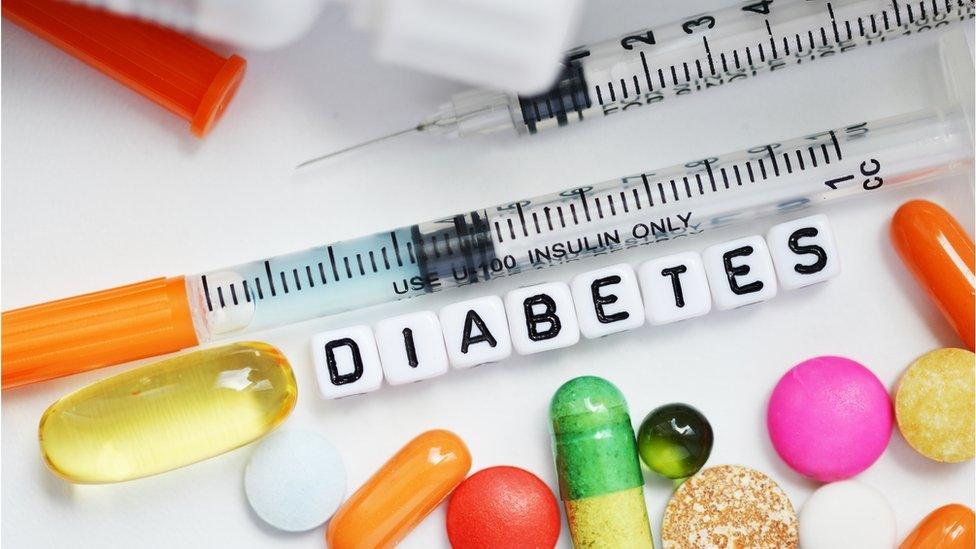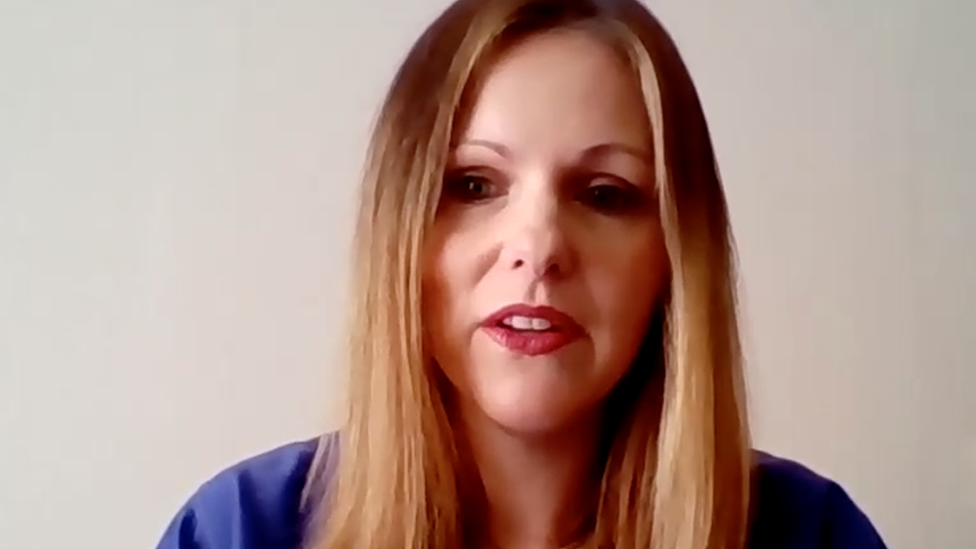Covid-19: Type 1 diabetes and Covid-19 link being investigated
- Published

A study is under way in the Southern Health Trust area to investigate possible links between Type 1 diabetes and Covid-19.
A consultant paediatrician said there has been an increase in the number of young people being diagnosed since the beginning of the pandemic.
Last year, the trust said there were 41 new cases, its highest yearly total on record.
Dr Sarinda Millar specialises in Type 1 diabetes in children and young people.
"We are having more diagnoses, specially since the start of 2021 but more last year, as well," she said.
"But in January we had nine new cases of Type 1 diabetes in children and young people in one week alone in our trust area," she said.

Dr Sarinda Millar specialises in Type 1 diabetes in children and young people
"In other years, we wouldn't even have had one every week. And regionally, we have all seen an increase in Type 1 diabetes which leads us to question is Covid-19 in some way related?"
The trust said that prior to 2019 there would have been between 25 and 30 diagnoses a year.
Type 1 diabetes is a serious autoimmune condition which results in the body not being able to produce the hormone insulin which controls blood glucose [sugar] levels.
Type 1 diabetes cannot be prevented and is the most common type of diabetes in both children and young adults.
Diet and lifestyle play no role in the development of Type 1 diabetes, which is a completely different condition to Type 2.

'Our lives have become very stagnant'

Beth McDaniel and Ellen Watson are known as the Diabetic Duo
Lockdown may not be a causal factor in the perceived increase in Type 1 diagnoses, but for those already managing the condition, it has made things more challenging.
Students Beth McDaniel and Ellen Watson, both 21, have Type 1 diabetes. They are well known as the Diabetic Duo on social media platform TikTok.
They say the past year has been difficult for people trying to manage the condition.
According to Ellen: "We weren't going out as much at the start on walks or taking exercise.
"It was a whole change to lifestyle and with things like diabetes that really effects your blood sugar levels so you have to get a brand-new routine and you maybe have to change your carb-counting ratios."
Beth has also noticed changes.
"We are working from home 9-5 five days a week," she said.
"So our lives have become very stagnant and static. As you can imagine our sugars and our readings have changed drastically. At the minute we are used to our new routine.
"But when we get this road map and start to come out of this it will be a shock to the system again."

Because of the increase in Type 1 diabetes over the past year, the Southern Trust is commissioning fresh research on the matter.
"It is quite a wide piece of research we are hoping to do," Dr Millar said.
"As well as looking to see if these children have been exposed to Covid, looking at their antibody status, we also want to know what other implications Covid-19 has had.
"For example, have families delayed bringing their child to hospital? We have seen that children are presenting sicker."

Type 1 diabetes - what to look out for
There are four key symptoms, known as the four Ts, which indicate you or your child may have Type 1 diabetes.
These include:
Going to the toilet more than normal
Being really thirsty
Tiredness
Weight loss
If you notice any of these symptoms doctors say you should seek medical attention as soon as possible.

But is the perceived increase in cases as a result of the impact lockdown has had on people's lifestyles or potentially as an outworking of having had the virus?
"We do know that viral triggers may cause the onset of Type 1 diabetes and it is from that angle that we are looking at this," said Dr Millar.
Related topics
- Published6 March 2020
